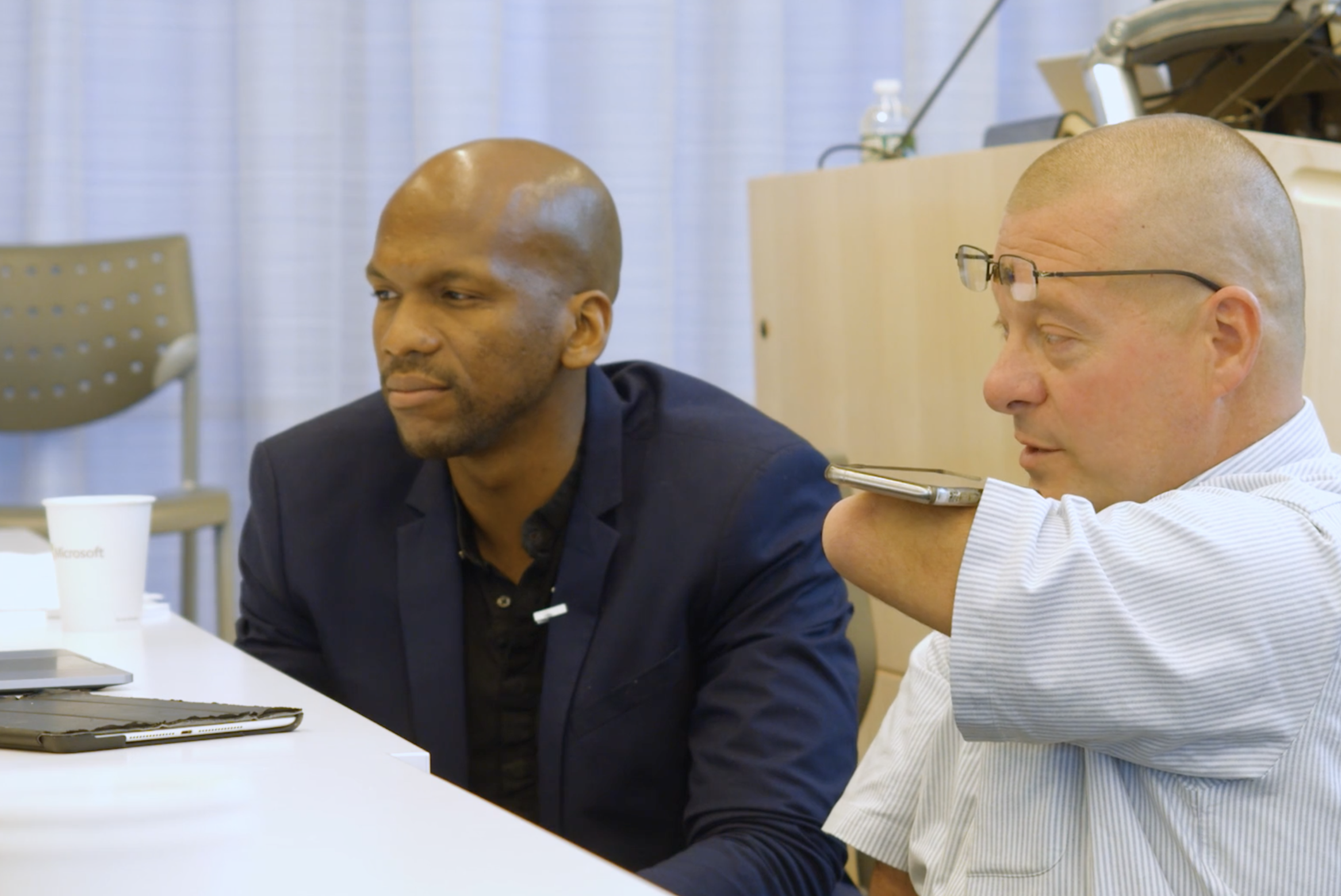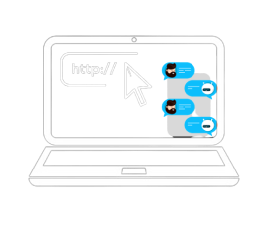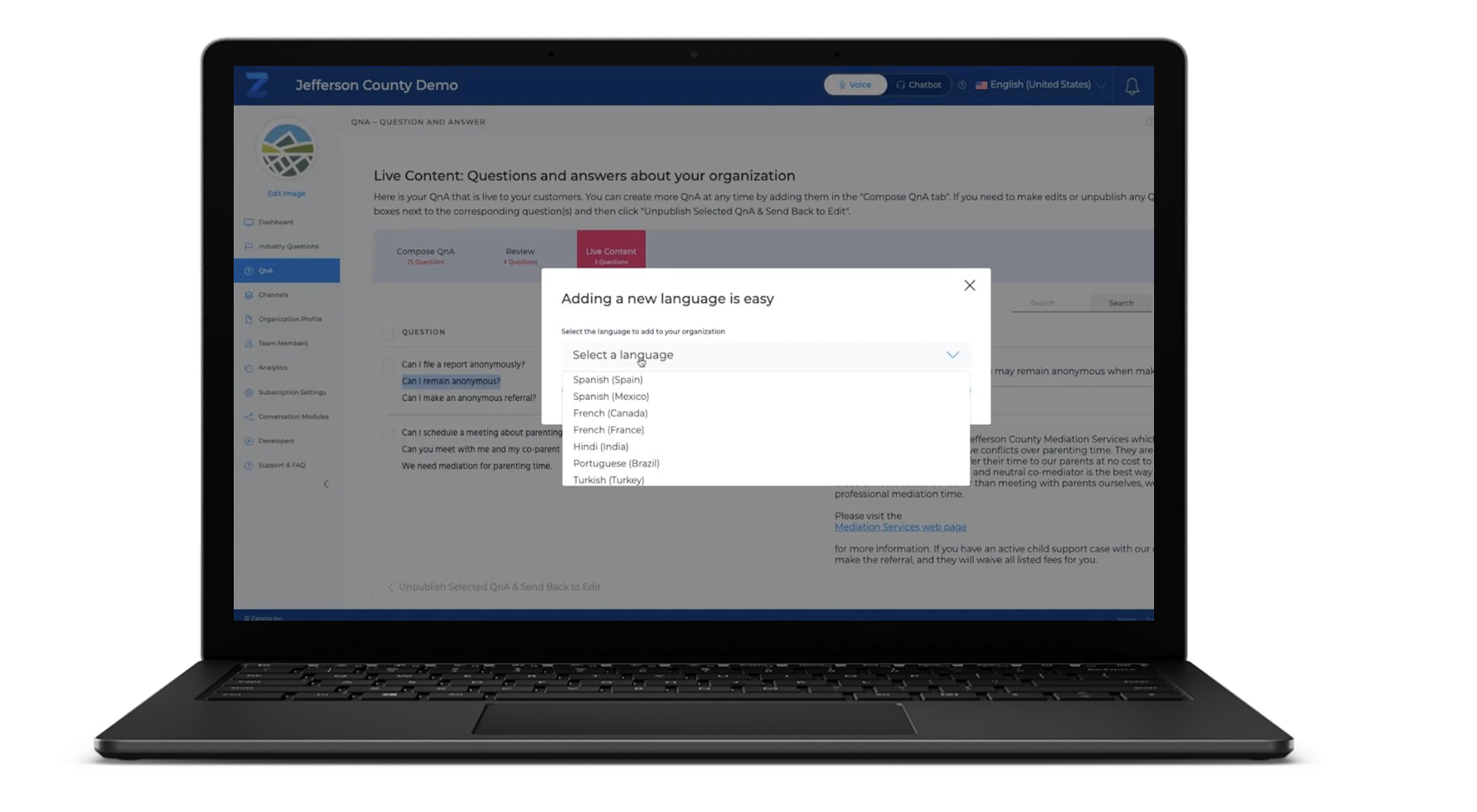Voice AI Breaks Down Barriers to Job Application
5 MIN READ
Finding and applying for jobs online can be time consuming and frustrating for many of us, but when a job seeker is blind or has low vision, the online job board itself can create a barrier to information, potentially excluding qualified candidates from the applicant pool.

Thanks to a recently awarded grant from Microsoft’s AI for Accessibility program, Zammo will utilize its expertise in voice AI to break down barriers in the online job board industry. We hope these innovations will help reduce the exclusion of people who are blind or low vision from traditional job-seeking activities, while also providing a path to inclusivity for businesses and organizations. Zammo’s project will focus on producing accessibility-friendly interfaces for various online job boards by applying voice technologies.
For the past three years, Zammo has worked with enterprises and government agencies to help them use conversational AI to improve the way the world works. We have seen firsthand the transformative impact of our software solution and believe that voice AI is the answer to helping people who are blind or low vision, have limited dexterity or other specific access needs find the job of their dreams.
“In the last few years, there has been a lot of talk about inclusivity, which is an important development that was long overdue,” said Zammo.ai CEO Alex Farr. “This grant will allow us to take our accessibility efforts to the next level by leveraging voice technology and AI for people with visual impairments or other disabilities. For many people with lived experiences of disability, voice can be easier as an input approach when searching or applying for roles in the job market. Simply looking for a job shouldn’t be so difficult, and our work can help make accessibility a reality for everyone.”
Microsoft’s AI for Accessibility program is a five-year effort dedicated to leveraging the power of artificial intelligence and machine learning (ML) to amplify human capability for the more than one billion people around the world with disabilities.
"People with disabilities still face barriers in finding employment, due to a myriad of reasons,” said Mary Bellard, principal innovation architect lead at Microsoft and AI for Accessibility program lead. “Zammo’s work in reducing barriers to entry for those who are blind or have low vision is a needed step in bridging the disability divide"
Zammo’s project, which began in October 2021, is broken down into four key phases: research, ideation, prototyping and MVP open-source development. The research team is currently conducting user interviews and surveys to validate the biggest pain points in the existing job search journey for job seekers with visual impairments, as well as existing job board providers and resource providers.
 Guy Tonye, Chief Engineer at Zammo.ai, and John Robinson, Founder and CEO of Our Ability, using voice search
Guy Tonye, Chief Engineer at Zammo.ai, and John Robinson, Founder and CEO of Our Ability, using voice search
“Understanding the existing job search journey and interfaces for people who are blind or low vision, as well as other access needs, is imperative to identifying the most effective and elegant solution. What we learn from the research will guide the rest of this project and hopefully lead us to a truly impactful result,” said Patrick Gilligan, Zammo.ai senior product manager.
To ensure that the end solution addresses the real need of people with disabilities, we are continuing to partner with Open Inclusion, an inclusive insight, design and innovation consultancy agency. They help organizations unlock value by asking, understanding, and considering the needs of people who move, sense, think or feel differently. Zammo’s project matches Open Inclusion’s purpose – making the world more inclusive and leveraging technology to solve current needs by reducing frictions in new ways.
“The team at Open Inclusion is enjoying engaging with job seekers in the USA and UK with a variety of access needs, adaptive approaches to using technology and employment goals,” said Christine Hemphill, managing director at Open Inclusion. “The research done to date has evidenced how and where people find today’s solutions difficult or inaccessible, as well as their perspectives on voice-based interactions. There is significant interest in the community and many valuable considerations to take into account in the designs. At the same time, we have gathered equally informative insights from providers of job boards and service support organizations. It is great to see the research now fueling the designs that Zammo is working on”
The initial round of interviews conducted by the Open Inclusion research team provided our team with insight about the job search process from job seekers, job boards and service providers. Learnings from the research will feed into validation and solutioning of the most accessible and impactful technology solutions and experiential designs. Through ideation sessions among industry experts and the use of prototypes we will continue to validate the pain points and ideal solutions for end-users.
At the end of the project, we will provide an open-source library exposing the technical and design assets of the solution for all to leverage and deploy. We hope to help increase its wide-spread adoption across major job boards and service providers while continuing to allow the community to contribute to the assets and extend its reach.
We want to improve the way the world works, and that starts with helping each other. Stay tuned to this space as we share updates on this project and the AI advancements we are applying to the job board industry and beyond.
To read more about this project and other Microsoft AI for Accessibility projects, visit https://www.microsoft.com/en-us/ai/ai-for-accessibility-projects.
Eager to learn more? Check out our videos showcasing how Zammo’s no-code platform is revolutionizing business for enterprises and government agencies.
More Articles
- Featured Articles Provide a Secure ChatGPT-like Experience
- Featured Articles Unlocking the Power of Conversational AI: What Sets Zammo.ai Apart
- Featured Articles Zammo.ai: The Drive-Ready Solution
- Featured Articles A Technology Collaboration Enables Job Seekers Living With Disabilities
- Featured Articles 5 Essential Attributes Of A Trusted Conversational AI SaaS Provider

 IVR / Telephony
IVR / Telephony Chatbot
Chatbot Enterprise
Enterprise Government
Government












